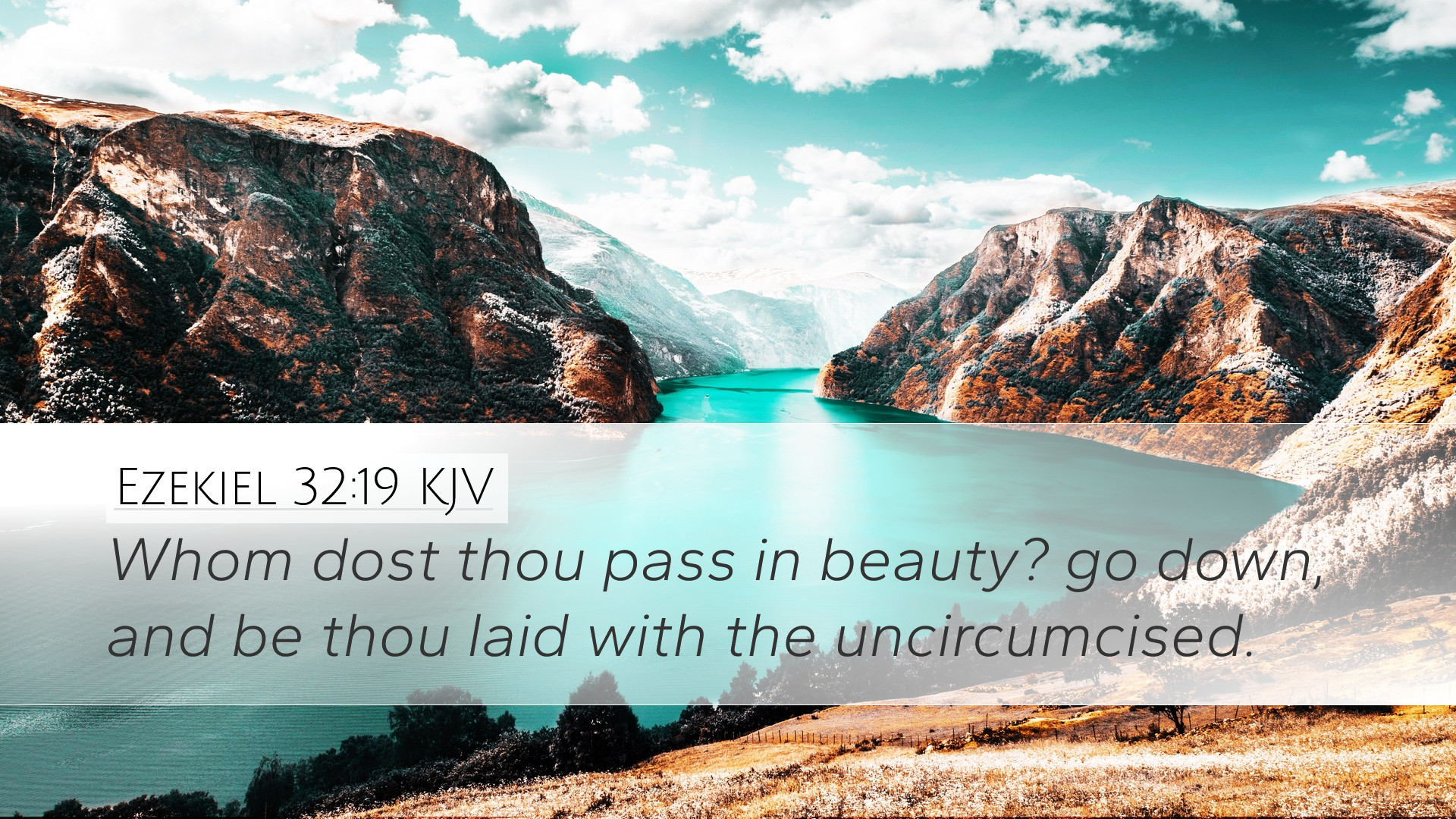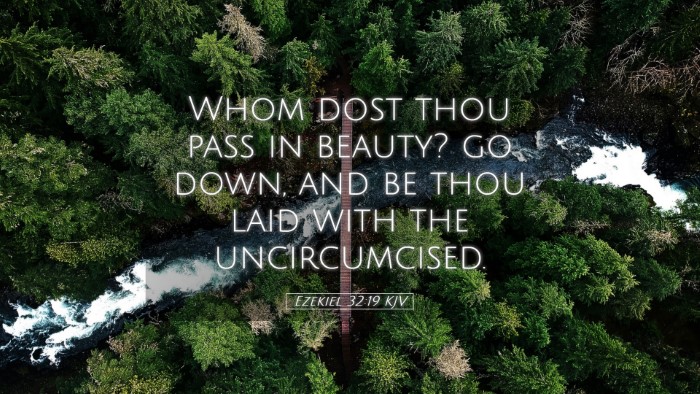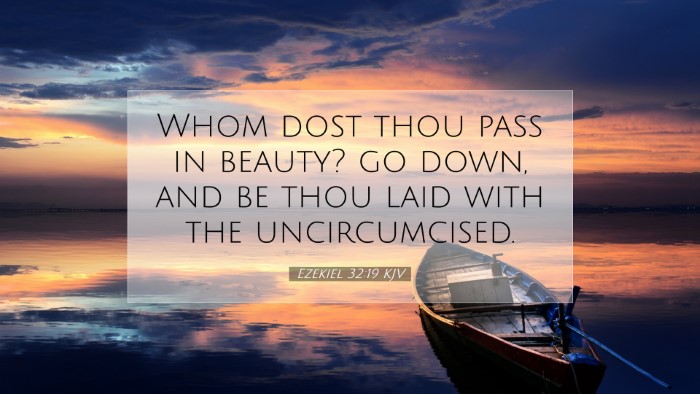Bible Commentary on Ezekiel 32:19
Ezekiel 32:19: "Whom dost thou pass in beauty? Go down, and be thou laid with the uncircumcised."
Introduction
The verse in Ezekiel 32:19 presents a profound pronouncement delivered by the prophet Ezekiel concerning Egypt and its eventual downfall. This commentary aims to synthesize insights from various public domain sources including Matthew Henry, Albert Barnes, and Adam Clarke, aiming to elucidate the theological, historical, and practical implications of this scripture for biblical scholars and theologians.
Contextual Background
Ezekiel's prophecies are situated in a tumultuous era for Israel, marked by exile and loss. Chapter 32 specifically addresses the fate of Egypt following the Babylonian conquest, illustrating both the nation’s pride and its inevitable judgment. Matthew Henry notes that Egypt, once a source of beauty and strength, would face humiliation, contrasting its glory with what it would become — a land forgotten among the nations.
Thematic Analysis
The phrase "Whom dost thou pass in beauty?" challenges Egypt’s former splendor, inviting a comparison with others who are also judged. In this context, the Lord uses stark imagery to depict the result of the nation’s arrogance and idolatry. Albert Barnes emphasizes that the beauty and strength of Egypt shall result in nothing but a grave among the uncircumcised, representing the ultimate disgrace of falling from power and honor.
- Pride and Judgement: This verse strongly illustrates the biblical theme of pride preceding a fall, a motif prevalent across Scripture.
- Comparison to Others: The inquiry into Egypt's beauty among nations alludes to the futility of its pride when faced with God’s judgment.
- Symbolism of Circumcision: Being "uncircumcised" symbolizes being outside of God's covenant, highlighting the eternal consequences of disobedience.
Exegetical Insights
Adam Clarke provides a very detailed exegesis on this passage, pointing out that the rhetorical question, “Whom dost thou pass in beauty?” implies an awareness of past glory but underlines the impending doom. Sinners may have their seasons of power and beauty, but without repentance and turn to God, they face eternal judgment.
Theological Significance
This verse presents several theological themes relevant to understanding the nature of God and human pride:
- The Sovereignty of God: God’s sovereignty is paramount, and no nation — regardless of its beauty or power — can escape His judicial actions.
- The Nature of Divine Judgement: The certainty of divine judgment against prideful nations acts as a warning to all who would exalt themselves above God.
- Covenantal Relationships: The distinction between the circumcised and uncircumcised serves as a reminder of God’s covenant with Israel and the consequences of breaking that relationship.
Practical Applications
For pastors and theological students, Ezekiel 32:19 offers practical applications that can be drawn for modern ministry:
- Humility Before God: Leaders must embody humility, recognizing that true strength lies in submission to God rather than in human power.
- The Marriage of Justice and Mercy: The passage presents a balance between God’s justice towards sin and the hope of redemption available through Jesus Christ.
- Proclamation of Truth: As God’s messengers, pastors are called to confront the beauty of worldly powers with the truth of Scripture, urging repentance.
Conclusion
Ezekiel 32:19 serves as a poignant reminder of the transient nature of human power and beauty in the face of God’s ultimate authority. Through the insights provided by scholars such as Henry, Barnes, and Clarke, we are reminded that while nations may rise and fall, God’s Word stands forever. This should compel today’s believers to prioritize spiritual over worldly beauty, seeking to glorify God above all.


